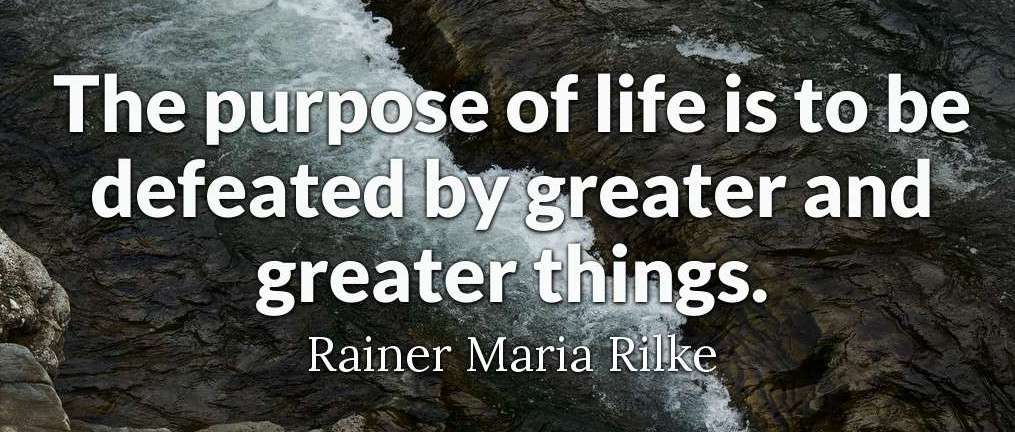|
home | what's new | other sites | contact | about |
|||
|
Word Gems exploring self-realization, sacred personhood, and full humanity
Intuition
Editor's 1-Minute Essay: Intuition
Albert Einstein: “The intuitive mind is a sacred gift and the rational mind is a faithful servant. We have created a society that honors the servant and has forgotten the gift.” Steve Jobs: “Your time is limited, so don't waste it living someone else's life. Don't be trapped by dogma - which is living with the results of other people's thinking. Don't let the noise of others' opinions drown out your own inner voice. And most important, have the courage to follow your heart and intuition.” Infinite Potential: The Life and Times of David Bohm, David Peat: “Faced with explaining gyroscopic motion, most physics students learn the various formulae, involving conservation of angular momentum, and produce an explanation in a relatively mechanical and formulaic fashion; but Bohm needed a direct perception of the inner nature of this motion. Once as he was walking in the country, he imagined himself as a gyroscope, and through some form of muscular interiorization, he was able to understand the nature of its motion. In this way he worked out, within his own body, the behavior of gyroscopes. The formulae and the mathematics would come later, as a formal way of explaining his insight. From very early on in his scientific career, Bohm trusted this interior, intuitive display as a more reliable way of arriving at solutions. Later, when he met and talked with Einstein, he learned that he too experienced subtle, internal muscular sensations that appeared to lie much deeper than ordinary rational and discursive thought. Without explicitly knowing it at the time, Bohm had returned to that ancient maxim ‘as above, so below,’ the medieval teaching that each individual is the microcosm of the macrocosm. Bohm himself strongly believed himself part of the universe and that, by giving attention to his own feelings and sensations, he should be able to arrive at a deeper understanding of the nature of the universe.” Ram Dass: “A rule of the spiritual practice game is learning to trust one’s own intuitive heart; learning to trust another way of knowing outside of the rational, analytical process. That you start to respond to something in you that knows even though who you think you are doesn’t know it knows. It turns out intuition is perhaps where salvation lies and where thinking is where our destruction lies." Albert Einstein: "The only real valuable thing is intuition." Pablo Neruda: “Being born is not enough. It is to be reborn that we are born. Everyday.” Federico Faggin, Silicon: ““I was born into a new life every time a mental structure made of prejudices, obsolete teachings, and uncritically accepted beliefs was shattered and I came out as if freed from prison. I was born to a new life every time my mind, observing from a new point of view, expanded to broader and new understandings. Above all, I was born to a new life when I stopped rationalizing and began listened to my intuition, opening myself to the mystery of my own consciousness... I had received a traditional Catholic education that filled me with dogmatic answers to questions I didn’t yet have the maturity to ask. Exactly the opposite of wise teachings of ancient philosophers like Plutarch, who said: The mind is not a vessel to be filled, but a fire to be kindled.” Editor’s note: Inventor of the first computer microchip, Dr. Faggin went on to pioneer the new science of consciousness, the primary reality, not matter. And if the “the One”, as he uses the term, that is, Universal Consciousness, becomes singular pervasive reality, then it, in its essence, will display the fundamental characteristics of consciousness: meaning, significance, awareness, qualia, comprehension, feeling, free will, intuition, discovery – none of which fits well with, is altogether antithetical to, the presumptuous and abusive filling young minds with dogmatic answers to questions that have not been asked. Rainer Maria Rilke: “I am learning to see. I don't know why it is, but everything enters me more deeply and doesn't stop where it once used to. I have an interior that I never knew of... What's the use of telling someone that I am changing? If I'm changing, I am no longer who I was; and if I am something else, it's obvious that I have no acquaintances. And I can't possibly write to strangers.”
Katori Hall: “Follow your intuition, listening to your dreams, your inner voice to guide you.” Benjamin Spock: "Trust yourself. You know more than you think you do." Alan Alda: “You have to leave the city of your comfort and go into the wilderness of your intuition. What you'll discover will be wonderful. What you'll discover is yourself.”
Oliver Wendell Holmes: "Systems die; instincts remain." Deepak Chopra: “Many scientists think that philosophy has no place, so for me it's a sad time because the role of reflection, contemplation, meditation, self inquiry, insight, intuition, imagination, creativity, free will, is in a way not given any importance, which is the domain of philosophers.” Henri Poincare: "It is through science that we prove, but through intuition that we discover." John Naisbitt: "Intuition becomes increasingly valuable in the new information society precisely because there is so much data."
Nicole Ari Parker: “Raising children uses every bit of your being - your heart, your time, your patience, your foresight, your intuition to protect them, and you have to use all of this while trying to figure out how to discipline them.” Frank Capra: "A hunch is creativity trying to tell you something." Jonas Salk: "It is always with excitement that I wake up in the morning wondering what my intuition will toss up to me, like gifts from the sea. I work with it and rely on it. It's my partner." Deepak Chopra: “Enlightened leadership is spiritual if we understand spirituality not as some kind of religious dogma or ideology but as the domain of awareness where we experience values like truth, goodness, beauty, love and compassion, and also intuition, creativity, insight and focused attention.” Immanuel Kant: "All human knowledge thus begins with intuitions, proceeds thence to concepts, and ends with ideas." Edgar Cayce: "The more and more each is impelled by that which is intuitive, or the relying upon the soul force within, the greater, the farther, the deeper, the broader, the more constructive may be the result." Robert Graves: "Intuition is the supra-logic that cuts out all the routine processes of thought and leaps straight from the problem to the answer." Rainer Maria Rilke: “…most experiences are unsayable, they happen in a space that no word has ever entered, and more unsayable than all other things are works of art, those mysterious existences, whose life endures beside our own small, transitory life” Honore de Balzac: “The smallest flower is a thought, a life answering to some feature of the Great Whole, of whom they have a persistent intuition.” Einstein: "The intuitive mind is a sacred gift and the rational mind is a faithful servant. We have created a society that honors the servant and has forgotten the gift." Paramahansa Yogananda: “Come into the silence of solitude, and the vibration there will talk to you through the voice of God.” Ingrid Bergman: "You must train your intuition. You must trust the small voice inside which tells you exactly what to say, what to decide." Lao Tzu: "The power of intuitive understanding will protect you from harm until the end of your days." William Butler Yeats: "People who lean on logic and philosophy and rational exposition end by starving the best part of the mind." Ingmar Bergman: “I throw a spear into the darkness. That is intuition. Then I must send an army into the darkness to find the spear. That is intellect.” Carlos Casteneda: "Conclusions arrived at through reasoning have very little or no influence in altering the course of our lives." Jonas Salk: "Intuition will tell the thinking mind where to look next." Dr. Joyce Brothers: "Trust your hunches. They're usually based on facts filed away just below the conscious level." Piet Mondrian: “Intuition enlightens and so links up with pure thought. They together become an intelligence which is not simply of the brain, which does not calculate, but feels and thinks.” Ralph Waldo Emerson: “The intuition of the moral sentiment is an insight of the perfection of the laws of the soul. These laws execute themselves. They are out of time, out of space, and not subject to circumstance.” Alexis Carrel: “All great men are gifted with intuition. They know without reasoning or analysis, what they need to know.” Shakti Gawain: “We live in a culture that doesn't acknowledge or validate human intuition and doesn't encourage us to rely on our intuitive wisdom.”
|
|||
|
|

